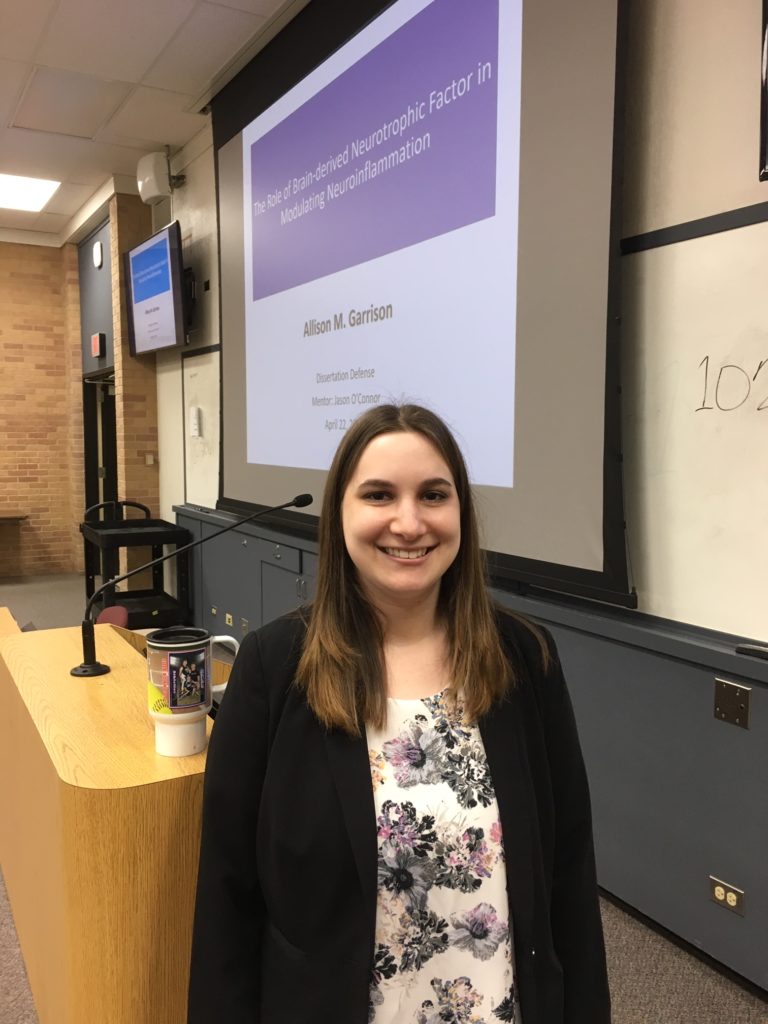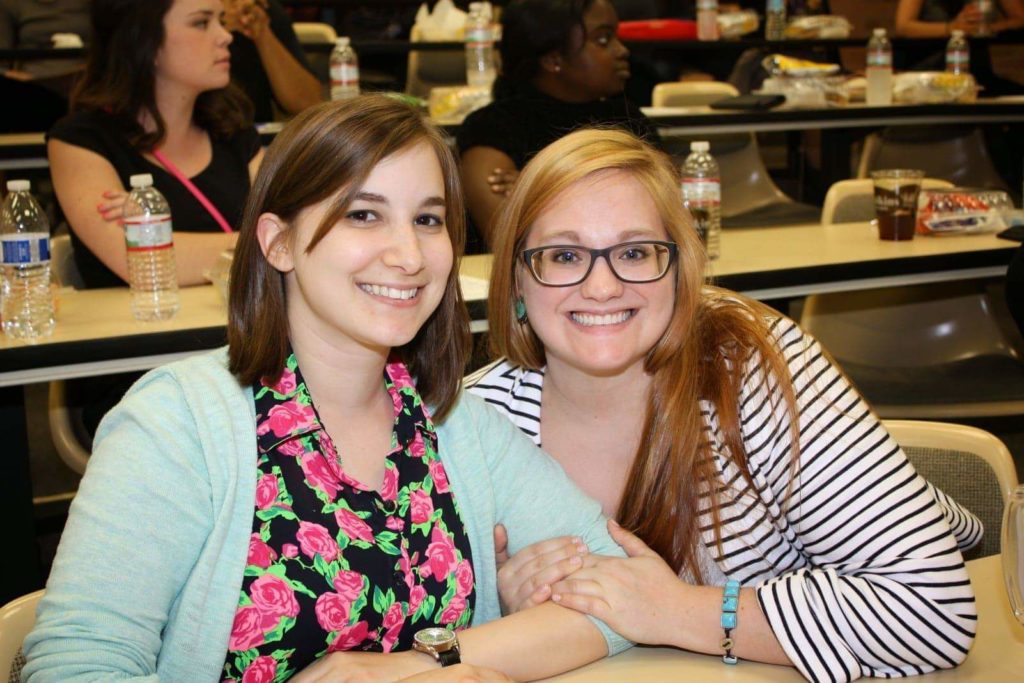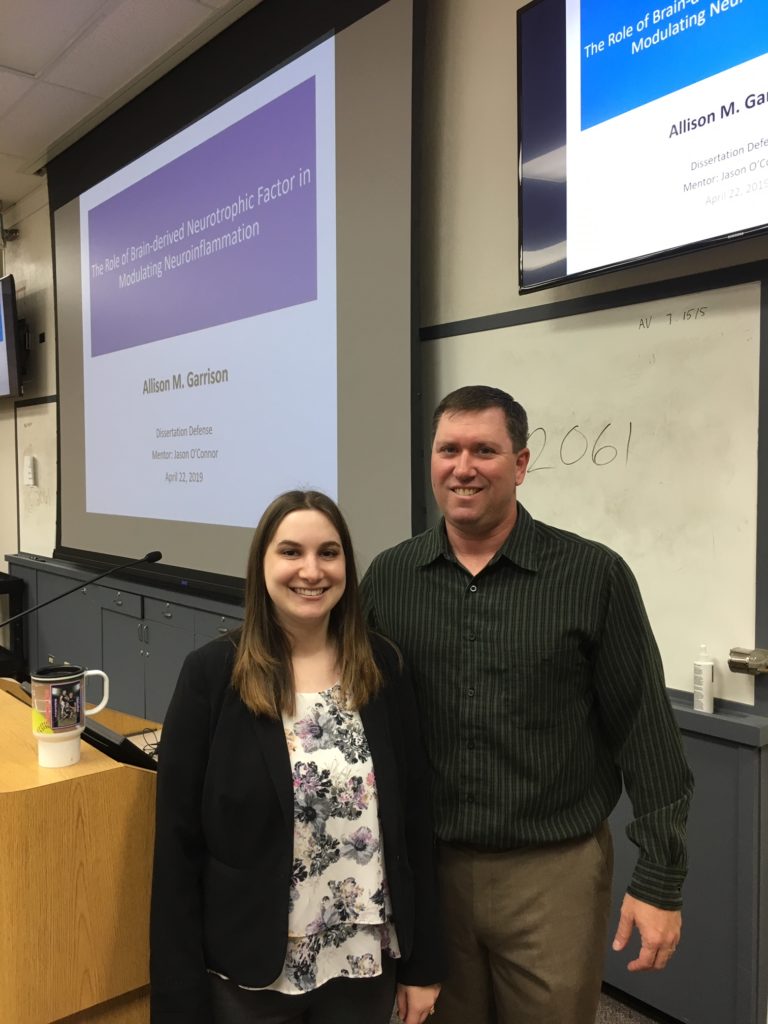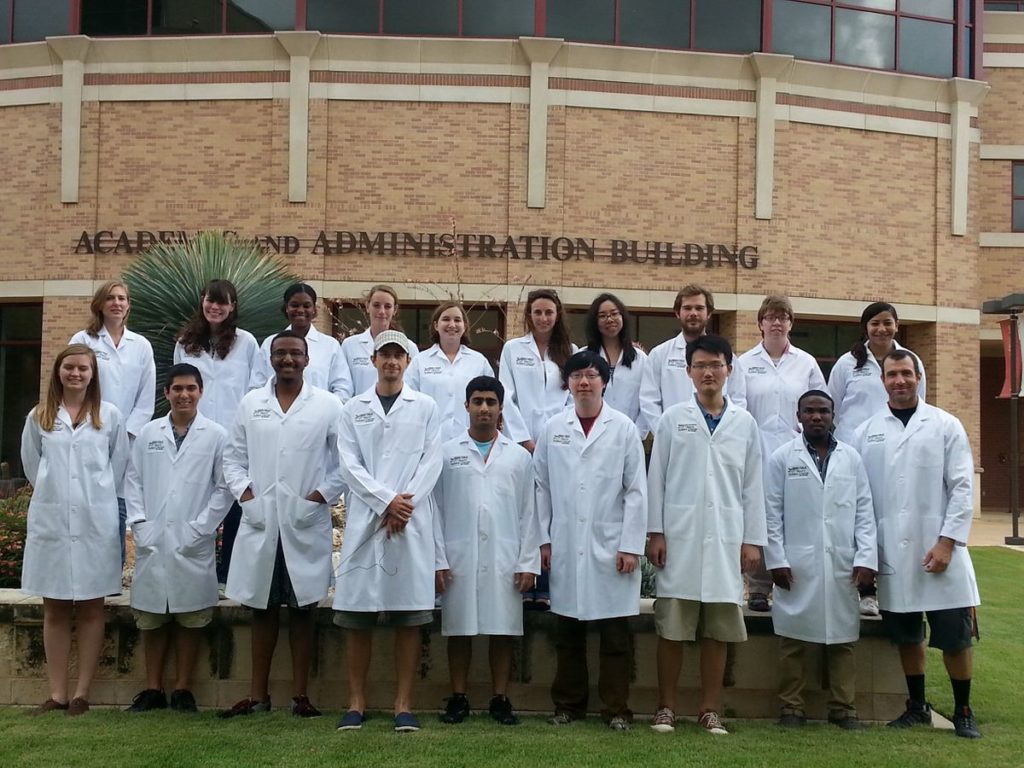Final Words: Allison Garrison & Her Passion for Pharmacology
 Your name, program, dissertation title.
Your name, program, dissertation title.
Allison Garrison, Integrated Biomedical Sciences Program (IBMS-PhD), Physiology/Pharmacology discipline, The role of brain-derived neurotrophic factor in modulating neuroinflammation
Please tell me about yourself, why did you pick UT Health San Antonio, and your program.
I was born and raised in northeast Ohio, and I’m the first in my family to earn a doctorate. I’ve been interested in biology since I was a toddler, and when I started college, I was intending to go to medical school. However, I discovered biomedical research and changed my career path to get a Ph.D.. My specialty is neuroimmunology, which I discovered in college. My undergraduate mentor introduced me to my graduate mentor, and it was a perfect fit. I was also looking for a multidisciplinary program, and I found that in the IBMS.
 What has been the highlight of graduate school so far? Have you won any awards or have there been any achievements you’ve been proud of?
What has been the highlight of graduate school so far? Have you won any awards or have there been any achievements you’ve been proud of?
The highlight has definitely been making it to the end! It’s an incredible feeling to see all of your accomplishments laid out, and to know it was worth it sticking through the hard times. I’ve won a number of awards during graduate school. One that stands out to me is the Trainee Scholar Award that I received from the Psychoneuroimmunology Research Society. This award funded me to attend their annual conference, which was fantastic because this is my niche field. I learned after the fact that this is the highest honor the Society gives to trainees!
 Please provide a few sentences summarizing your dissertation. What was the experience like for you?
Please provide a few sentences summarizing your dissertation. What was the experience like for you?
My dissertation work focused on understanding genetic susceptibility to depression using a mouse model. We found that mice expressing a human single nucleotide polymorphism were susceptible to develop depressive-like behaviors after an inflammatory challenge. We also found that microglia, the innate immune cells of the brain, were altered in these mice.Once I finished my dissertation proposal and I had my whole project laid out for me, I was laser-focused to get it completed and finish my degree. To do this, I planned ahead every aspect of my experiments and data analysis so I could optimize my time spent in lab, and I was done in no time. For my last semester, I have focused on writing, both my dissertation and a couple manuscripts. I’m fortunate enough to have a mentor who is supportive of me writing full time, so it hasn’t been too bad.
Why are you passionate about your research topic? How did you first become interested in it?
What first drew me to neuroimmunology was its inherent multidisciplinary nature; I had never even considered how the nervous and immune systems may interact. I joined a lab in college, and I was immediately hooked. I learned something new every day, and that thrill of discovery sent me, eventually, in search of a Ph.D.
What’s next?
After graduation, I plan to move to the Dallas/Fort Worth area to explore my career in clinical research and/or biopharma.
Any advice for your fellow graduate students?
Plan, plan, plan! Plan ahead as much as you can, optimize your time spent working, and you’ll be done in no time. When you run into a problem (and you inevitably will), don’t dwell on it too much, but use it as an opportunity to learn something new and move forward. Don’t forget to have fun!


